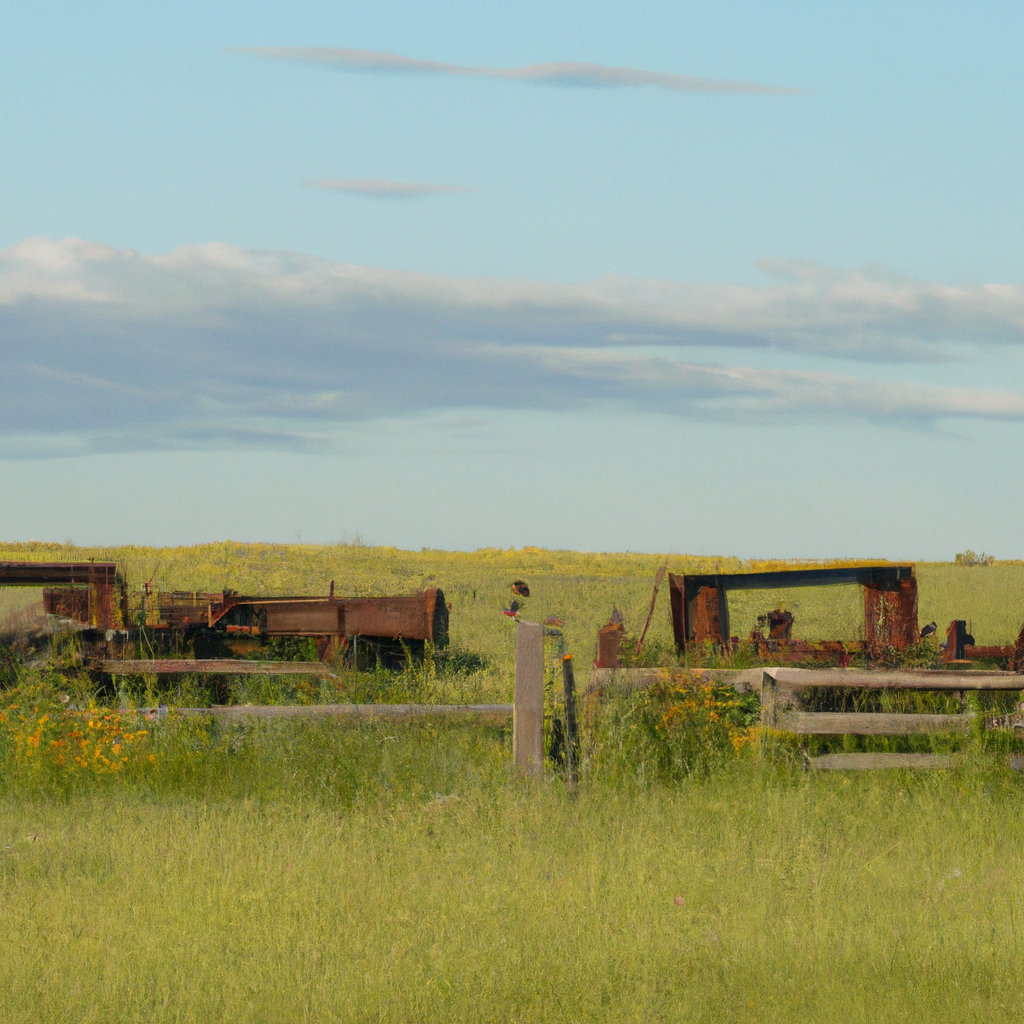Life on the prairie was anything but easy for early settlers who crossed wild terrain in pursuit of a better life. But those brave pioneers faced and overcame a number of challenges, taking in the beauty of the land while carving out a homestead and creating meaningful communities. This article tells the story of what it was like to live and thrive on the prairie during its early days, revealing the highs and lows of these resilient settlers.
1. Pioneers in a Brand New World
The world as we know it is constantly evolving – new technologies, ideologies, and business models usher in a new era of the human experience. Today we look to a new generation of innovators, influencers, and entrepreneurs to lead us into the future.
These pioneering individuals take on the challenge of pioneering in a brand new world with ambition and grit. They use ground-breaking techniques to create new products, services, and strategies to revolutionize our lives. Whether creating apps, fashion brands, or software startups, they are determined to make a difference, and to shape the future.
The pioneers in the new era understand how important the online world is. They remain up-to-date on the latest trends and technologies and use them to their advantage. They understand how to make an impact online, whether through creating content that engages or developing powerful algorithms that can manage almost every aspect of a company.
They are also adept at leveraging data analytics and artificial intelligence to ensure that their strategies are successful. Through the power of today’s technologies, these pioneers are able to test, track, and adjust their strategies to maximize success and minimize failure.
- Flexible – Pioneers are flexible in their approach and have the ability to adjust their strategies to changing trends and technologies.
- Analytical – They have the data and analytical skills to monitor, track, and adjust their strategies to ensure success.
- Innovative – They come up with new ideas and solutions to existing problems that could revolutionize society.
- Purposeful – They create with purpose, aiming to better the world in some meaningful way.
From start-ups to established enterprises, a new wave of innovators is transforming the world. These entrepreneurs, visionaries, and thought leaders are the .

2. Overcoming the Obstacles of Settling the Prairie
For those seeking to establish a life on the prairie, there were a number of challenges that needed to be faced. From the wildlife to the weather, they faced their own unique set of obstacles.
- The Fauna of the Prairie. The early settlers had to contend with the animal life on the prairie, from bison to rattlesnakes. Some of the animals, like the bison, were an essential source of food and materials; others, like the rattlesnakes, were a hazardous reminder of why it was important to stay vigilant.
- The Weather. The climate of the prairie was notoriously unpredictable; storms on the prairie could whip up with little notice, while dry spells could drag on for weeks. It was also often very cold in the wintertime, though most early settlers had begun their journeys in the spring or summer.
- The Isolation. People who chose to settle the plains of the prairie were often hundreds of miles from anywhere. This could be both a blessing and a curse; a lack of fellow travelers to rely on, paired with few resource options.
- The Difficulties of Farming. The environments of the prairie were very difficult to farm, with the unforgiving nature of the wind and the unpredictable weather. Establishing any meaningful sort of agriculture was an arduous process filled with risk.
Yet, despite the difficulties posed, the early settlers were determined to make a go of it. Through their resourcefulness, hard work, and determination, they persevered. Homes were constructed, tools fashioned, and crops planted, until the plains were eventually transformed into the farms and villages we see today.
The speed and scope of this transformation are remarkable, but only serve to highlight the incredible perseverance and resilience of those brave souls who chose to settle and thrive in the prairie.
3. Adapting to a Harsh Environment
Living in a harsh environment can be difficult, but adapting to one can be rewarding. People who come from less-than-ideal circumstances not only get to enjoy the benefits of a changed environment, but also experience the satisfaction of overcoming adversity.
The first step to adapting to your environment is to accept it for what it is. Embrace the changes and be realistic when it comes to what you can and can’t do. Don’t expect miracles to happen overnight. Instead, focus on improving your conditions little by little as you learn more about the challenges and rewards associated with your new environment.
It’s also important to stay positive and be open-minded when it comes to your environment. This will help you see opportunities and challenges from new angles that you may have never considered before. As your knowledge grows, so will your confidence in yourself.
Naturally, you should always keep yourself informed on news and developments related to the environment. This will help you stay up to date and be prepared for any challenges that may arise.
Finally, make sure to take good care of yourself. Focus on eating healthy, exercising, and getting enough rest. These are key factors when it comes to adapting successfully to any environment.
When it comes to adapting to a new environment, remember the following:
- Accept the changes and be realistic.
- Stay positive and open-minded.
- Keep yourself informed.
- Take care of your body and mind.
It may not be easy, but with a little commitment and effort, can bring a great number of rewards.
4. Finding Success on the Great Plains
The Great Plains have played host to successful settlers for countless ages. Their relative flatness and reliable rainfall made homesteading dreams come true.
Check Histories – those who have attempted to establish life on the plains have the best success if they have managed to read or hear from histories of settlers who preceeded them. The hard lessons learned and insight gleaned can be invaluable to making the best decisions in order to succeed.
Work the Land – the flat, fertile earth has supported farmers for centuries. Learning what works, the best times to plant, and when to harvest, can insure success. If at all possible, it pays to research farmers of the locale and learn from their experience.
Get to Know the Locals – anyone looking to make a go of it on the plains needs to establish relationships with locals. Make allies with the indigenous people who have lived on the land the longest, as well as other settlers. There is foundational power to be found in working well with those who have already penetrated and navigated certain circumstances.
Preserve the Relationship with Nature – making a life on the plains means having to adjust to its weather, peculiarities, and nuances that come with living on an endless expanse of land. Having a good relationship with nature, seeing the vast beauty of the area, and learning respect for the elements can yield great rewards.
Be Prepared – the harshness of prairie life often lulls newcomers into a false sense of security before disrupting their plans. Having a backup plan can save the day in the event of an unexpected weatherchange, or other factor. This is no time to play the hero; have a plan and stick to it.
The journey of the early settlers was a challenging one. Through resilience and hard work, they embraced the opportunities of prairie life and made a start for a future generations to build upon. Their journey to create a life and the history and culture they left behind is a testament to their courage, determination, and the spirit that made this nation great.
